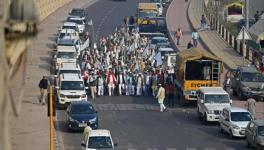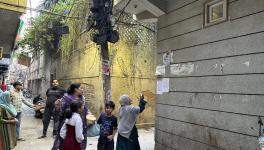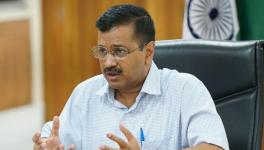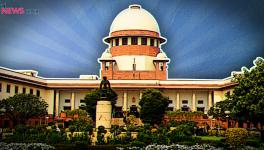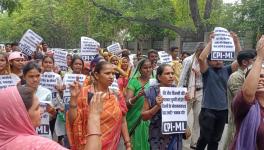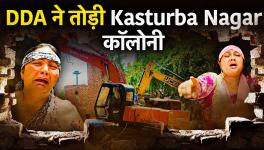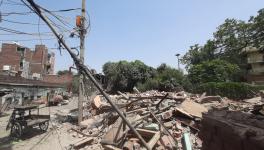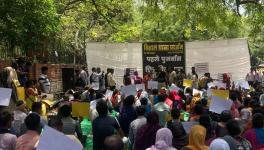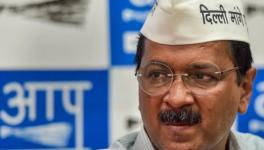‘We had Great Hopes, but Modiji has Failed us,’ say Delhi Villagers on Exclusion from Svamitva Scheme
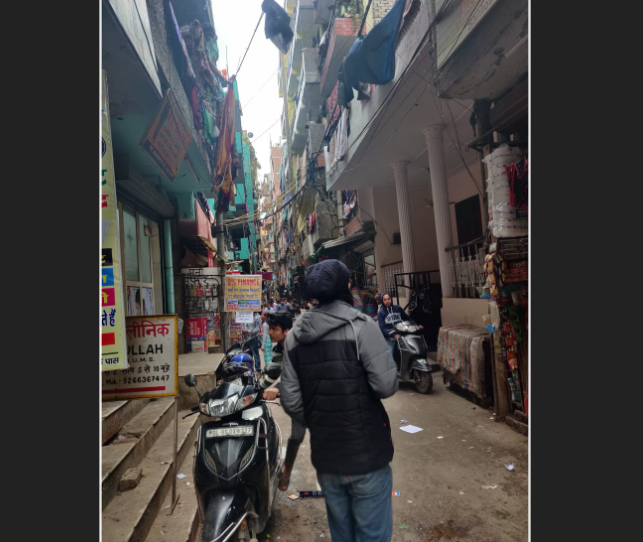
New Delhi: For Pradeep Dagar, the full page advertisement of Svamitva Yojana (a Central scheme for property ownership in rural areas) with a huge portrait of Prime Minister Narendra Modi staring out, is a cruel joke.
Dagar, a resident of Dhansa village in Delhi, claims his ancestors migrated to the village in the 11th century from Sonipat in Haryana. But, despite being the one of the oldest residents, his family still awaits government certificates establishing property rights over their own home, thanks to bureaucratic juggling and a blurred line between the national capital being a Union territory and a state.
Millions of residents of villages in Delhi, such as Dagar, hoped that the Svamitva Yojana would remove the anomaly of Lal Dora land and open up new avenues for growth. Lal Dora land in Delhi denotes the official limits of any village within the city where people lived.
However, the demarcation of habitation was divided into big plots of land known as Khasra. Since Khasra constitutes a bigger patch of land, there is no clear demarcation of households and the property owned by them.
The residents expected the Svamitva Yojana, implemented through the Ministry of Panchayati Raj in rural parts of India, to do away with inconsistencies and offer them a unique identity number to establish their property rights. But this seems a far cry.
Talking with NewsClick over the phone, Dagar said for years, the governments in Delhi and the Centre did not conduct any survey to ascertain the layout plans for Delhi’s villages and deprived them from ownership rights.
“As we do not have any ownership documents, we cannot apply for any bank loan, be it for daughter’s marriage, children’s education or any medical emergency. If we go to private money lenders, they charge a high interest rate of 4% per month. The present scheme was brought in with the purpose of enabling loan opportunities to the rural population, but in Delhi, the Centre is defeating its purpose by not implementing it,” he said.
The Ministry of Panchayati Raj, the nodal agency for implementing the scheme, in its framework states that the scheme “would provide the ‘record of rights’ to village household owners possessing houses in inhabited rural areas in villages which, in turn, would enable them to use their property as a financial asset for taking loans and other financial benefits from banks. Further, this would also enable updation of property and asset register to strengthen tax collection and demand assessment process of Gram Panchayats. Thus, the legal record of property holders and issuance of ‘Property Cards’ to household owners based thereon would facilitate monetization of rural residential assets for the purchase of credit and other financial services.”
The document maintained that through extensive mapping of villages, it would facilitate an accurate estimate for development projects. The ministry said GIS maps and spatial database would also help in preparation of accurate work estimates for various works undertaken by gram panchayats and other state government departments.
These can also be used to prepare better quality Gram Panchayat Development Plan (GPDP).
However, the expectations of Delhi’s villages were belied when Minister of State for Panchayati Raj, Kapil Moreshwar Patil, in his answer to an unstarred question in the Lok Sabha, said that the scheme could not be implemented in Delhi in the absence of gram panchayat (elected Assembly of village representatives).
Patil said: ”The SVAMITVA scheme is not being implemented in Delhi as there are no rural local bodies in Delhi and villages of Delhi are under the administrative jurisdiction of municipalities.”
Reacting strongly to the Minister’s objection, Dagar said: “How does it matter if we have no gram sabha or panchayat. A block development officer is still working, other administrative offices are still in existence. Why should the absence of a single local body stop (the scheme’s) implementation.”
He said: “the central agencies were already working for acquisition of agricultural land in 165 villages through land pooling and making a green belt, but not all people possess land and their home is the only asset they own.”
Deepak Tyagi, a resident of Budella village in West Delhi, told NewsClick that villagers of Delhi were deprived of their due rights as their forefathers were either lured by money or threatened with action.
“Our forefathers sold land in Basai Darapur in the 1960s at the rate of 60 paise per yard. Since they were illiterate, they could not resist. The ones who resisted were assured of government jobs for their children but they never got it. Since colonies settled on our land, politicians no longer wanted our votes. If we get loans, then a plethora of opportunities would open up. We could open micro industries, teach our children well. We had great hopes from Modiji. but he failed us completely,” he said.
Paras Tyagi, co-founder, Centre for Youth, Culture, Law and Environment, who has been pursuing similar cases, shows three letters from Bank of India, Allahabad Bank and Punjab National Bank denying them loans against ancestral property. The letters stated that ”the loan against ancestral property in Lal Dora of Delhi is being denied as there is no availability of complete chain of title deeds with revenue department of Delhi. Further, the land is not covered in the notified area of Delhi.”
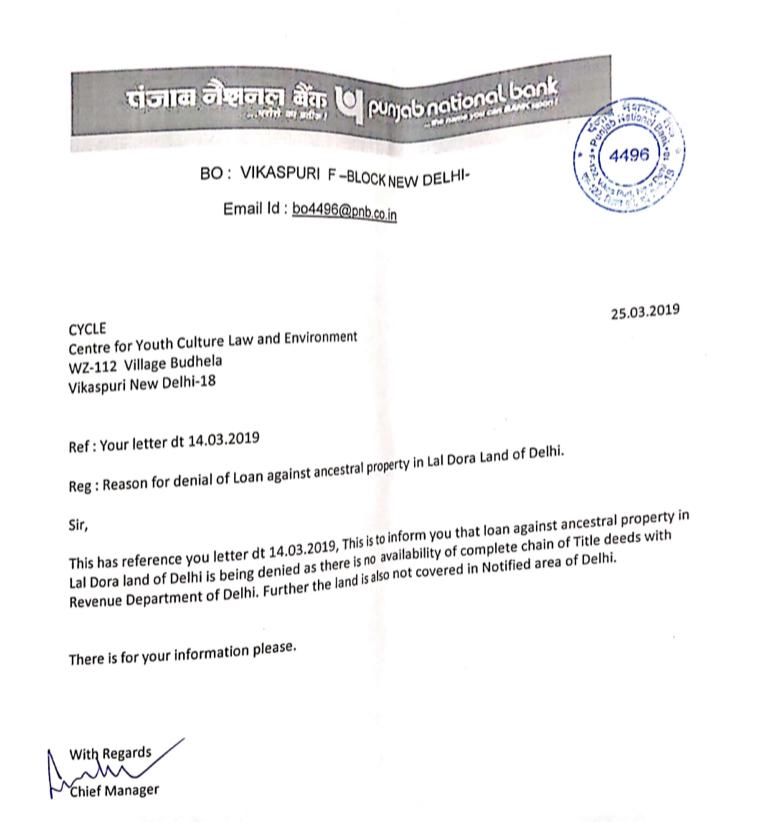
Talking to NewsClick, Tyagi said the PM Modi repeatedly said the scheme would be implemented universally across the country and no citizen will be deprived of land ownership rights. “But, with Panchayati Raj Ministry’s denial, it is clear that he does not know Delhi beyond the limits of Lutyens' Zone. The current status quo ensures that our lands have zero value and property mafia can hunt it down with a pittance of money”, he said.
Also, it ensures there is no infrastructure development in the form of colleges, sewage systems, schools and hospitals. “By excluding Delhi, he (PM Modi) is repeating the sins of previous regimes,” Tyagi said.
Get the latest reports & analysis with people's perspective on Protests, movements & deep analytical videos, discussions of the current affairs in your Telegram app. Subscribe to NewsClick's Telegram channel & get Real-Time updates on stories, as they get published on our website.









